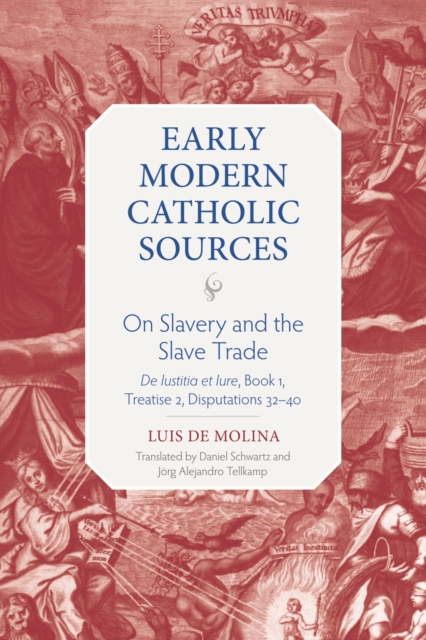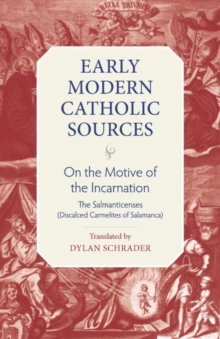
On Slavery and the Slave Trade : De Iustitia et Iure, Book 1, Treatise 2, Disputations 32-40 Hardback
by Luis de Molina, Daniel Schwartz, Jorg A. Tellkamp
Part of the Early Modern Catholic Sources series
Hardback
Description
In his monumental On Justice and Rights, the Jesuit Luis de Molina (1535-1600) discussed the legal and ethical aspects of the Portuguese trade in African and Asian enslaved persons.
Molina surveys, develops, and problematizes the criteria necessary for the legitimate possession, sale, and purchase of human freedom.
He insists that, even under legally valid slavery, persons who have sold or lost their freedom have inalienable rights as human beings, such as the freedom to make contracts, to marry, and even, under certain circumstances, to sue their owners in court.
Molina also devotes attention to the ways in which slavery could be ended and whether and under what circumstances slaves had the right to escape from their owners.
Well informed about the political structures and customs of many peoples in Africa, as well as Japan, China, and India, Molina paints a vivid and detailed picture of Portuguese trade.
He gives specific accounts of the origins and development of the slave trade, region by region, and of the nature of the relationship between local rulers and the Portuguese kingdom.
In doing so, he carefully describes the deception, coercion, and general indifference that pervades this trade regarding the rights to freedom of these people.
It also attempts to identify the political, ecclesiastical, and market agents involved in this great injustice and their varying degrees of culpability.
While Molina does not condemn slavery as a legal institution, the deeply flawed and even immoral behavior of sellers, buyers, regulators, and political rulers both in Portugal and in the slave-supplying regions that Molina denounces casts a heavy shadow on the morality of the trade.
Information
-
Available to Order - This title is available to order, with delivery expected within 2 weeks
- Format:Hardback
- Pages:200 pages
- Publisher:The Catholic University of America Press
- Publication Date:31/03/2024
- Category:
- ISBN:9780813237497
Information
-
Available to Order - This title is available to order, with delivery expected within 2 weeks
- Format:Hardback
- Pages:200 pages
- Publisher:The Catholic University of America Press
- Publication Date:31/03/2024
- Category:
- ISBN:9780813237497










